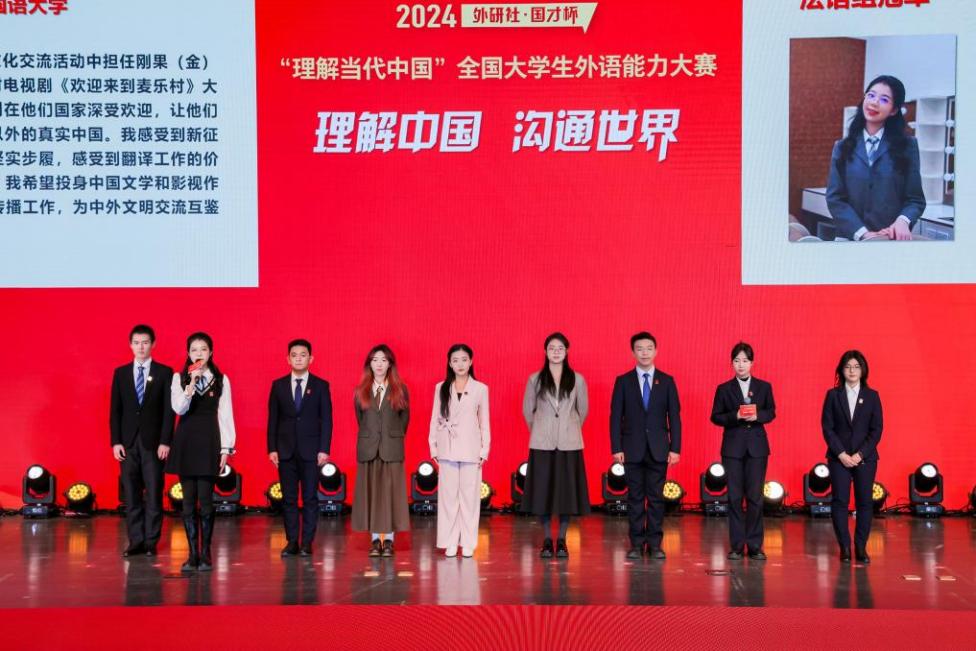Universities right to reduce foreign language seats, start new majors


More than 100 Chinese universities have either closed their foreign language colleges or merged them with other colleges in the past five years or so, mainly because the number of bachelor degrees awarded to foreign language majors every year has been declining at a rapid pace.
Foreign language teaching started in China more than 150 years ago, with English, French and Japanese being the first languages to be taught in the foreign concession schools in Shanghai and Tianjin. After the Japanese invaded northeast China in 1931, students in the occupied areas were compelled to learn Japanese, an experience more miserable than that described by Alphonse Daudet in The Last Lesson.
In the 1950s and 1960s, when China was on good terms with the Soviet Union, Russian was the most popular subject to be taught in foreign language colleges. Only after China launched reform and opening-up in the late 1970s did it realized the shortage of Chinese people who could read, write and speak English, French, German, Japanese and some other foreign languages.
For nearly three decades after that, mastering a foreign language became key to getting a good job with decent pay. When I graduated from a language school in 1977 with English as my major, the demand for English teachers for middle schools was so high that my classmates who failed to clear the college entrance examination were all recruited by local education authorities as middle-school teachers.
There was such a shortage of foreign language teachers that after graduating from the English department of a university, six of my 17 classmates were directly recruited by my university to teach English there. While leaving to join China Daily, I heard that the six youths who were yet to get their bachelor's degree, were preparing to teach English to the freshmen. This may sound unbelievable today, but it was the reality in the 1980s.
Earning a major in one foreign language or more foreign languages was popular among students until about a decade ago, when reportedly about 400 million Chinese children and youths were learning a foreign language with English being by far the most popular — followed by Japanese and Korean. Also, about a decade and a half ago, more than 300,000 students were studying one of the 60 foreign languages taught in China as a major.
When such a huge number of graduates compete for limited number of teaching and translating job vacancies, a good job, let alone good pay, becomes difficult to get.
As a journalist, who majored in English literature and has seen the ups and downs of foreign language teaching over the past five decades, should I feel sad about the closing of foreign language colleges? For me, the development is not the result of foreign languages losing their popularity but a proof that the Chinese people now have a better grasp of foreign languages.
Till a few years ago, most Chinese people, including officials, scholars and businessmen, had to depend on interpreters and translators to communicate with their foreign counterparts. Today, most Chinese people with a higher education degree have studied English or another foreign language for 12 to 16 years and thus can read, write and speak in that language. This is to say they can converse in English or the foreign language they chose to study.
The rapid advancement of artificial intelligence technology has helped the development of apps that can translate. Although we sometimes laugh at new technologies for their "silly" translations, we know that AI's intrusion into the realm of translation is something unavoidable.
Like it or not, in no time a big part of language translation and interpretation work will be done by AI and bilingual or even trilingual talents may soon find themselves struggling to find a well-paying job. I think the universities are making the right decision by reducing the number of seats in foreign language departments while starting new majors that combine foreign languages with law, trade, arts and other emerging subjects.
The author is former deputy editor-in-chief of China Daily.
kangbing@chinadaily.com.cn

































